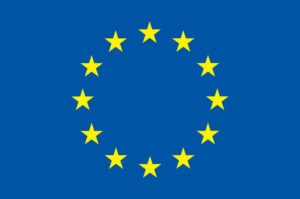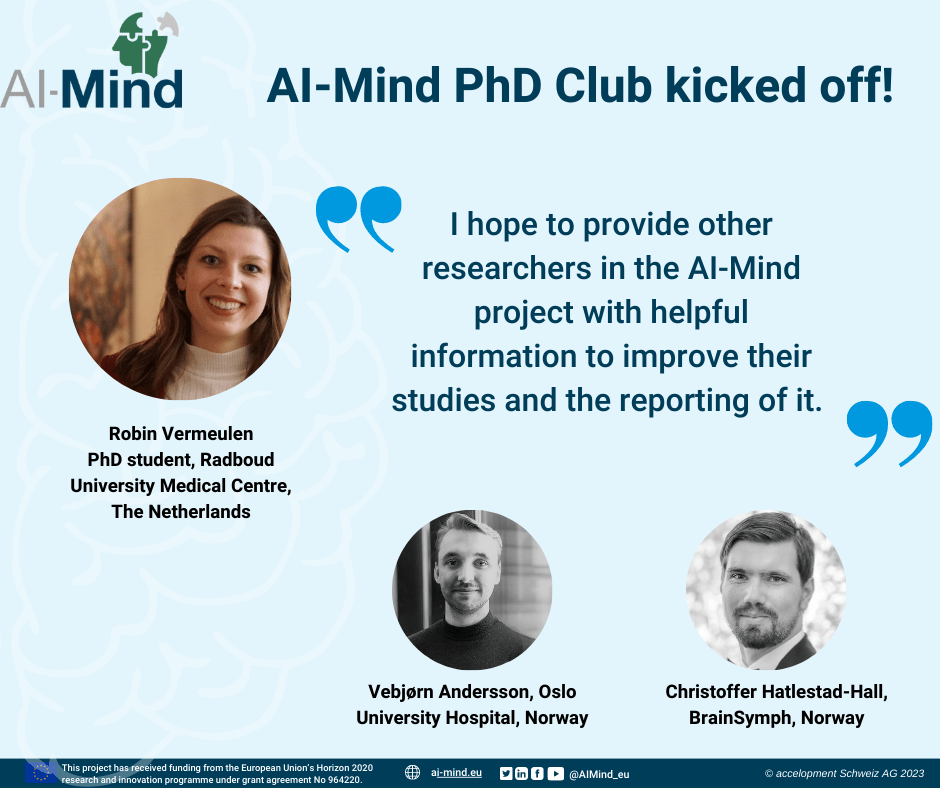The AI-Mind PhD Club kicked off with an online meeting
We are delighted to announce the launch of the AI-Mind PhD Club! The primary goal of the Club is to support young researchers involved in AI-Mind, by offering them the opportunity to share their research interests and findings, connect and collaborate with like-minded individuals from various fields of study. The meetings are planned to occur regularly and welcome participants of different levels of expertise and research backgrounds – from PhD students, Master’s students to research assistants, clinicians, technicians as well as senior researchers!
The first meeting, on 10th February, brought together attendees connecting online from across Europe. Christoffer Hatlestad-Hall together with Vebjørn Andersson from Oslo University Hospital coordinating the AI-Mind PhD Club kicked off the meeting with a warm welcome and an introduction to the Club`s concept followed by an interactive discussion on aims and wishes.
The key point of the programme was a presentation given by Robin Vermeulen, a PhD student (Radboud University Medical Centre) whose research in the field of health economics focuses on the early evaluation of healthcare innovations.

Robin Vermeulen, PhD student
As she points out: By performing the early Health Technology Assessment of the AI-Mind tools under development, I hope to provide the other partners in the project valuable information to help them steer the development of the tools into the most (cost-)effective solution. To keep improving the quality of our healthcare, I believe that we should take well-informed decisions during the development and implementation of new healthcare technologies. informed decisions during the development and implementation of new healthcare technologies.
At the first AI-Mind PhD Club meeting, Robin was presenting the systematic review that she and Vebjørn Andersson are currently working on. With this review, they aim to create an overview of risk prediction models that have been developed to predict the progression to dementia in people with Mild Cognitive Impairment. During the presentation, Robin focused on the Risk of Bias Assessment for Prediction Model assessment of the included studies.
By sharing information on the domains that are evaluated when assessing the quality of prediction model development studies, and by sharing information on frequently occurring shortcomings in study designs or reporting, I hope to provide other researchers in the AI-Mind project helpful information to improve their studies and the reporting of it. – she added.
On the occasion, we asked Robin a few more questions:
Why did you choose to become a scientist?
I started this PhD, first of all, because I liked being involved in medical research. Besides, doing a PhD offers me the opportunity to broaden my research skills and to find out if I pursue a further career in science.
What is the most exciting part of being a scientist (in the AI-Mind)?
Being involved in the AI-Mind project allows me to focus my research on a disabling health condition that is widespread across the world, where is a large potential for healthcare improvement. Also, one of the most exciting things about being part of the AI-Mind project is the international collaboration. This contributes to my knowledge of different healthcare systems across Europe, about different cultures and how this impacts perspectives towards medical care. Moreover, it is great to connect with interesting and nice researchers across Europe during the in-person meetings with the consortium.
Stay tuned for future updates from the AI-Mind PhD Club and in the meantime celebrate #WomenInScience with AI-Mind and our other female PhD students, who will be featured in our next article.


